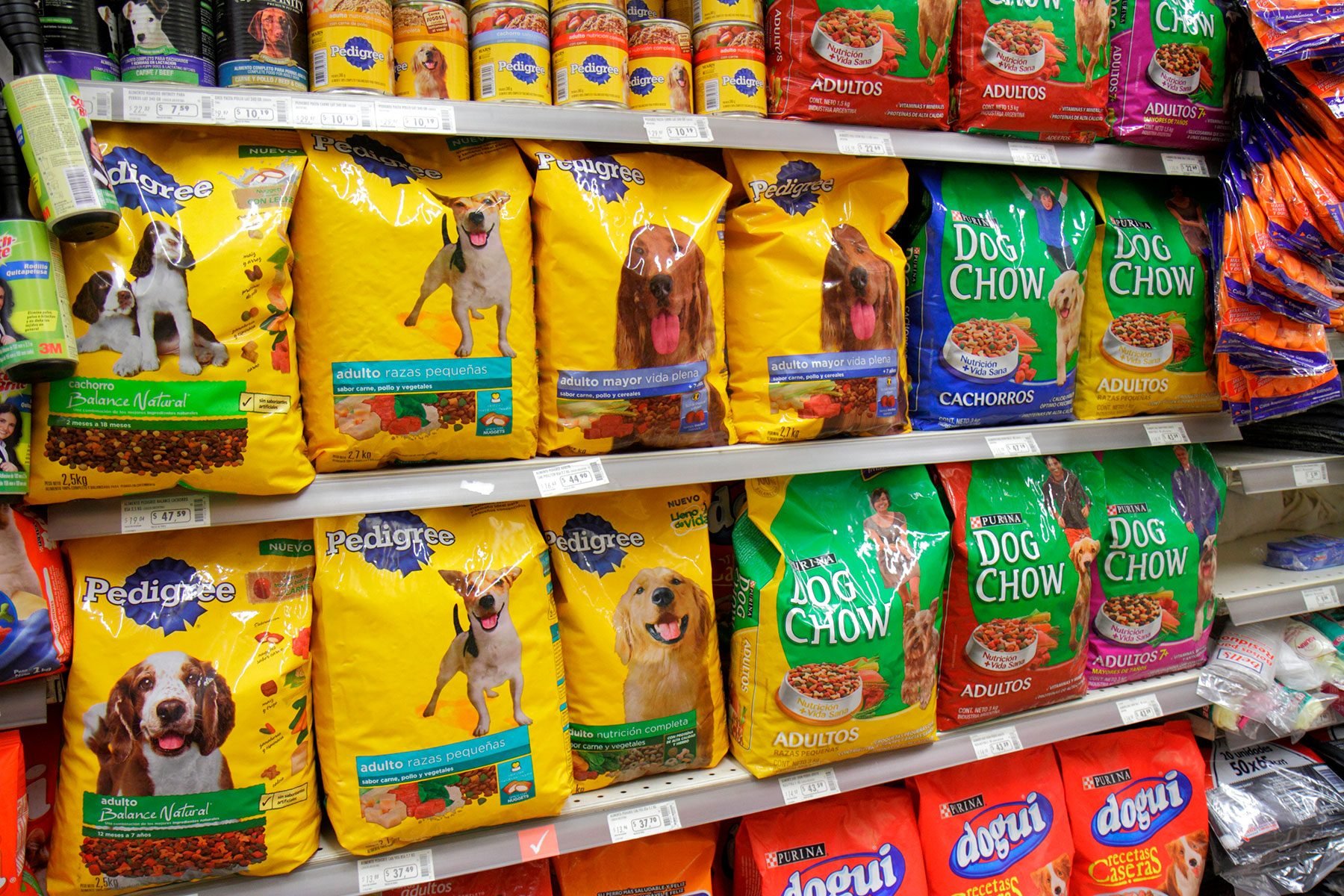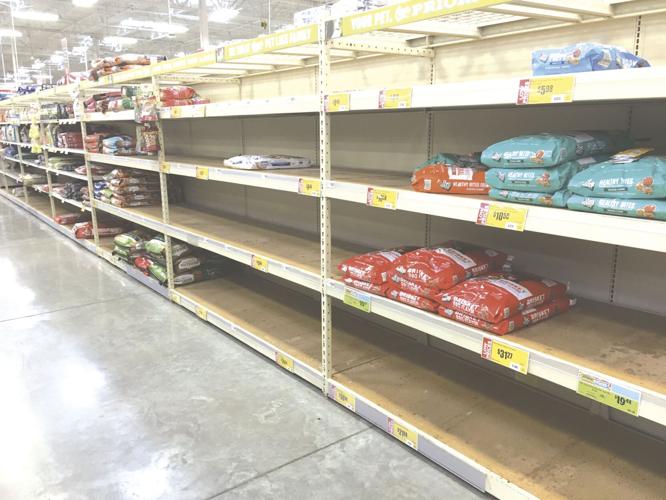As pet owners, we all want to make sure our furry friends are happy and healthy. And for many of us, that means providing them with high-quality dog food. But lately, there have been concerns about a potential dog food shortage. With rumors swirling about rising costs and supply chain disruptions, many pet owners are understandably worried about what this could mean for their four-legged companions.
So, is there really going to be a dog food shortage? The answer is complicated. While there are certainly some challenges facing the pet food industry, it’s not all doom and gloom. In this article, we’ll take a closer look at what’s going on and provide you with the information you need to make the best decisions for your furry friend. So, grab a cup of coffee (or tea, or whatever your beverage of choice may be), and let’s dive in!
Currently, there is no evidence of a dog food shortage. However, due to the ongoing pandemic, some manufacturers are experiencing delays in production and distribution. It’s always a good idea to have a backup plan and stock up on your pet’s food to avoid any potential shortages. Keep an eye on the news and consult with your veterinarian for any updates or recommendations.

Is There Going to Be a Dog Food Shortage?
As the world continues to grapple with the effects of the COVID-19 pandemic, many pet owners are wondering whether there will be a shortage of dog food in the near future. With supply chains disrupted and many manufacturers facing challenges due to the pandemic, the possibility of a shortage is not out of the question. In this article, we will explore the factors that could contribute to a dog food shortage and what pet owners can do to ensure their furry friends don’t go hungry.
Supply Chain Disruptions
The COVID-19 pandemic has disrupted supply chains around the world, and the pet food industry is no exception. With borders closed and transportation systems disrupted, it’s becoming increasingly difficult to get raw ingredients and finished products from one place to another. This has led to shortages of some pet foods in certain regions, and there are concerns that this could escalate into a wider shortage if the pandemic continues to drag on.
One of the main challenges facing dog food manufacturers is the availability of meat products. As meat processing plants have been forced to close due to outbreaks of COVID-19 among workers, the supply of meat has dwindled. This has led to higher prices for meat-based dog foods and could eventually lead to shortages if the situation doesn’t improve.
Pet food manufacturers are also facing challenges in sourcing other ingredients, such as grains and vegetables, as many countries have imposed export restrictions in an attempt to shore up their own food supplies.
Increased Demand
Another factor that could contribute to a dog food shortage is increased demand. With more people staying at home due to lockdowns and social distancing measures, many have decided to adopt a pet or have increased their pet ownership. This has led to a surge in demand for pet food, which could strain the supply chain and lead to shortages.
In addition, some pet owners may be stockpiling pet food in case of a future shortage, which could exacerbate the problem. It’s important for pet owners to only purchase what they need and to avoid hoarding, as this can make it harder for others to find the food their pets need.
What Pet Owners Can Do
While there is no way to predict with certainty whether there will be a dog food shortage, there are steps pet owners can take to ensure their furry friends don’t go hungry.
One option is to switch to a different type of dog food that is less reliant on meat products. Vegetarian or vegan dog foods are an option for some dogs, although it’s important to ensure that they still receive all the necessary nutrients. Another option is to make homemade dog food, although this should only be done under the guidance of a veterinary nutritionist.
Pet owners can also consider purchasing dog food in bulk, which can help ensure a steady supply. However, it’s important to check expiration dates and to store the food properly to prevent spoilage.
Finally, pet owners can support local pet food manufacturers by purchasing their products. These manufacturers may be more resilient to supply chain disruptions than larger, multinational companies, and supporting them can help ensure a steady supply of dog food in your area.
Conclusion
While a dog food shortage is not inevitable, it is a possibility that pet owners should be aware of. By understanding the factors that could contribute to a shortage and taking steps to prepare, pet owners can help ensure that their furry friends stay healthy and well-fed during these uncertain times.
Frequently Asked Questions
With the ongoing pandemic, many people are concerned about the availability of dog food. Here are some commonly asked questions regarding a potential dog food shortage.
What is causing the potential dog food shortage?
The COVID-19 pandemic has disrupted the supply chain for many industries, including pet food. With factory shutdowns, transportation issues, and an increase in demand for pet food, manufacturers are struggling to keep up with the supply. Additionally, some manufacturers are facing ingredient shortages due to the pandemic’s impact on agriculture and farming.
Another factor contributing to the potential shortage is panic buying. As people stock up on essentials, including pet food, shelves are becoming empty faster than they can be restocked. This has caused some retailers to limit the number of pet food items customers can purchase at once.
Will there be a complete dog food shortage?
It is unlikely that there will be a complete shortage of dog food. Manufacturers are working to increase production and find alternative ingredients to make up for any shortages. Additionally, many retailers and distributors have implemented measures to ensure the supply of pet food remains stable.
However, certain brands or types of dog food may become temporarily unavailable or harder to find. Pet owners may need to be flexible and switch to a different brand or type of food if their preferred option is not available.
What can pet owners do to prepare for a potential shortage?
Pet owners can take several steps to prepare for a potential dog food shortage. First, they can stock up on a reasonable amount of pet food to ensure they have enough to last a few weeks. It is important not to hoard pet food as this can lead to shortages for other pet owners.
Pet owners can also look for alternative brands or types of dog food that their pets may enjoy. It is essential to gradually introduce new foods to avoid upsetting their pets’ stomachs. Additionally, pet owners can consider making homemade dog food with veterinarian-approved recipes.
What should pet owners do if their preferred brand of dog food is not available?
If a pet owner’s preferred brand or type of dog food is not available, they should consider switching to a different brand or type of food. It is crucial to make the transition gradually to avoid upsetting their pets’ stomachs. Pet owners can also consult with their veterinarian for recommendations on alternative dog food brands or recipes for homemade dog food.
It is important to remember that dogs have different nutritional needs, and it is essential to provide them with balanced and complete nutrition. Pet owners should always read the ingredients on the dog food label and ensure that it meets their pet’s nutritional needs.
How can pet owners help prevent a potential dog food shortage?
Pet owners can help prevent a potential dog food shortage by avoiding panic buying and only buying what they need. Hoarding pet food can lead to shortages for other pet owners, and it is important to be considerate of others during these challenging times.
Pet owners can also consider buying dog food directly from manufacturers, as this can help reduce the strain on the supply chain. It is also essential to support local pet stores and retailers, as they may have a more stable supply of pet food than larger chain stores.

List of Discontinued Dog Food – Shortage
As a professional writer, I understand the importance of keeping up with the latest news and trends in every industry. The recent rumors of a potential dog food shortage have left many pet owners concerned about the availability and quality of their furry friend’s meals. While it’s difficult to predict the future with certainty, there are a few things we can consider to better understand the situation.
Firstly, it’s important to note that the pet food industry is a highly regulated one, with strict safety and quality standards in place. This means that even in the event of a shortage, manufacturers will still prioritize producing safe and nutritious products for our pets. Additionally, pet food companies have contingency plans in place for emergencies and disruptions in the supply chain, which can help mitigate the effects of any potential shortages.
In conclusion, while the possibility of a dog food shortage is a concern for pet owners, it’s important to remember that there are measures in place to ensure the safety and well-being of our furry friends. Staying informed and taking proactive measures, such as stocking up on food and exploring alternative options, can help ease any worries and keep our pets happy and healthy. As responsible pet owners, it’s up to us to stay vigilant and take care of our beloved companions.
